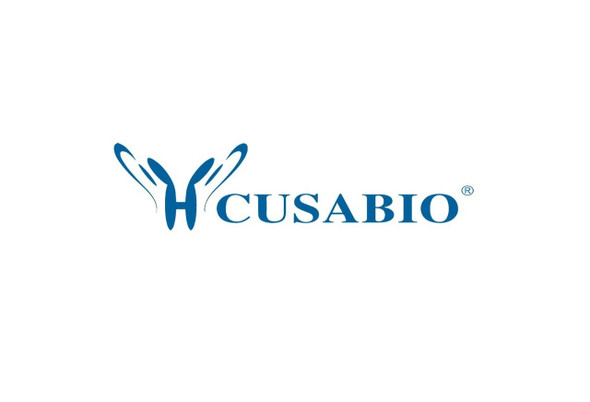Cusabio Polyclonal Antibodies
SMAD4 Antibody | CSB-PA619768LA01HU
- SKU:
- CSB-PA619768LA01HU
- Availability:
- 3 to 7 Working Days
Description
SMAD4 Antibody | CSB-PA619768LA01HU | Cusabio
SMAD4 Antibody is Available at Gentaur Genprice with the fastest delivery.
Online Order Payment is possible or send quotation to info@gentaur.com.
Product Type: Polyclonal Antibody
Target Names: SMAD4
Aliases: Mothers against decapentaplegic homolog 4 (MAD homolog 4) (Mothers against DPP homolog 4) (Deletion target in pancreatic carcinoma 4) (SMAD family member 4) (SMAD 4) (Smad4) (hSMAD4), SMAD4, DPC4 MADH4
Background: In muscle physiology, plays a central role in the balance between atrophy and hypertrophy. When recruited by MSTN, promotes atrophy response via phosphorylated SMAD2/4. MSTN decrease causes SMAD4 release and subsequent recruitment by the BMP pathway to promote hypertrophy via phosphorylated SMAD1/5/8. Acts synergistically with SMAD1 and YY1 in bone morphogenetic protein (BMP) -mediated cardiac-specific gene expression. Binds to SMAD binding elements (SBEs) (5'-GTCT/AGAC-3') within BMP response element (BMPRE) of cardiac activating regions. Common SMAD (co-SMAD) is the coactivator and mediator of signal transduction by TGF-beta (transforming growth factor) . Component of the heterotrimeric SMAD2/SMAD3-SMAD4 complex that forms in the nucleus and is required for the TGF-mediated signaling. Promotes binding of the SMAD2/SMAD4/FAST-1 complex to DNA and provides an activation function required for SMAD1 or SMAD2 to stimulate transcription. Component of the multimeric SMAD3/SMAD4/JUN/FOS complex which forms at the AP1 promoter site; required for synergistic transcriptional activity in response to TGF-beta. May act as a tumor suppressor. Positively regulates PDPK1 kinase activity by stimulating its dissociation from the 14-3-3 protein YWHAQ which acts as a negative regulator.
Isotype: IgG
Conjugate: Non-conjugated
Clonality: Polyclonal
Uniport ID: Q13485
Host Species: Rabbit
Species Reactivity: Human
Immunogen: Recombinant Human Mothers against decapentaplegic homolog 4 protein (27-195AA)
Immunogen Species: Human
Applications: ELISA, WB, IHC, IP
Tested Applications: ELISA, WB, IHC, IP; Recommended dilution: WB:1:500-1:5000, IHC:1:20-1:200, IP:1:200-1:2000
Purification Method: >95%, Protein G purified
Dilution Ratio1: ELISA:1:2000-1:10000
Dilution Ratio2: WB:1:500-1:5000
Dilution Ratio3: IHC:1:20-1:200
Dilution Ratio4: IP:1:200-1:2000
Dilution Ratio5:
Dilution Ratio6:
Buffer: Preservative: 0.03% Proclin 300
Constituents: 50% Glycerol, 0.01M PBS, PH 7.4
Form: Liquid
Storage: Upon receipt, store at -20°C or -80°C. Avoid repeated freeze.
Initial Research Areas: Signal Transduction
Research Areas: Epigenetics & Nuclear Signaling;Cancer;Cardiovascular;Metabolism;Signal transduction;Stem cells















